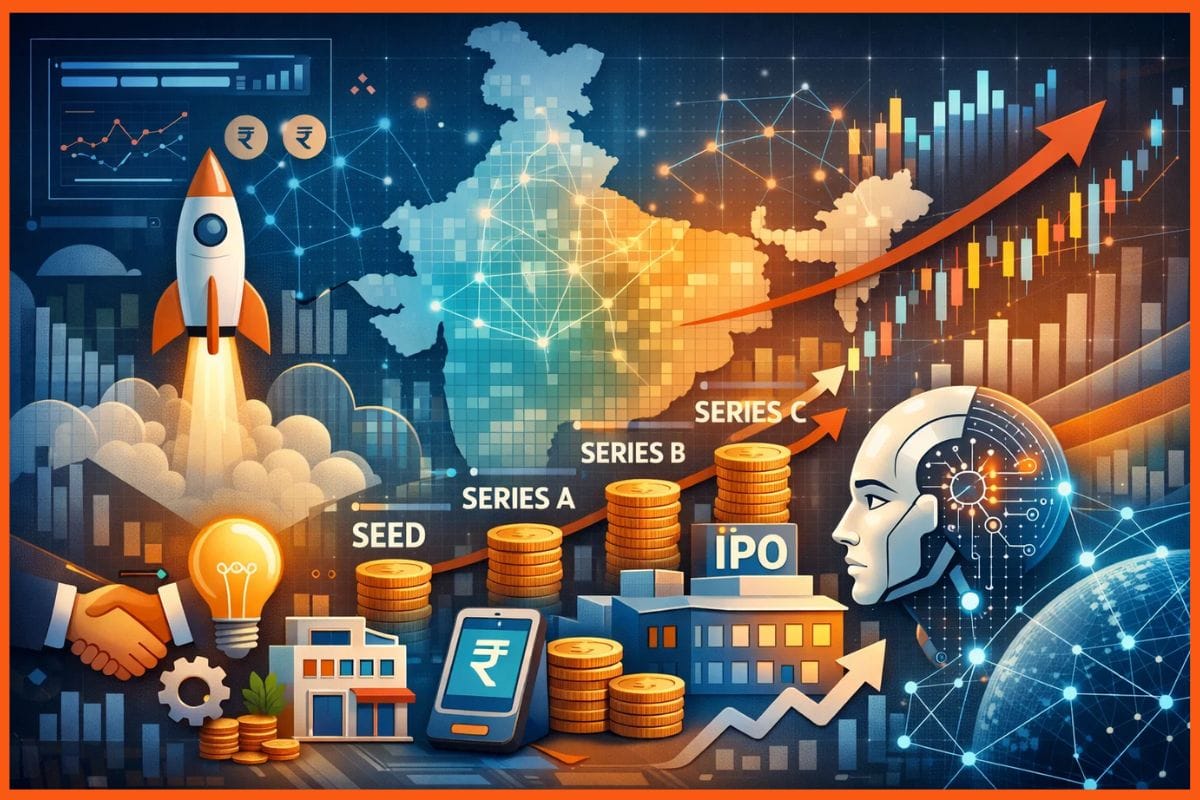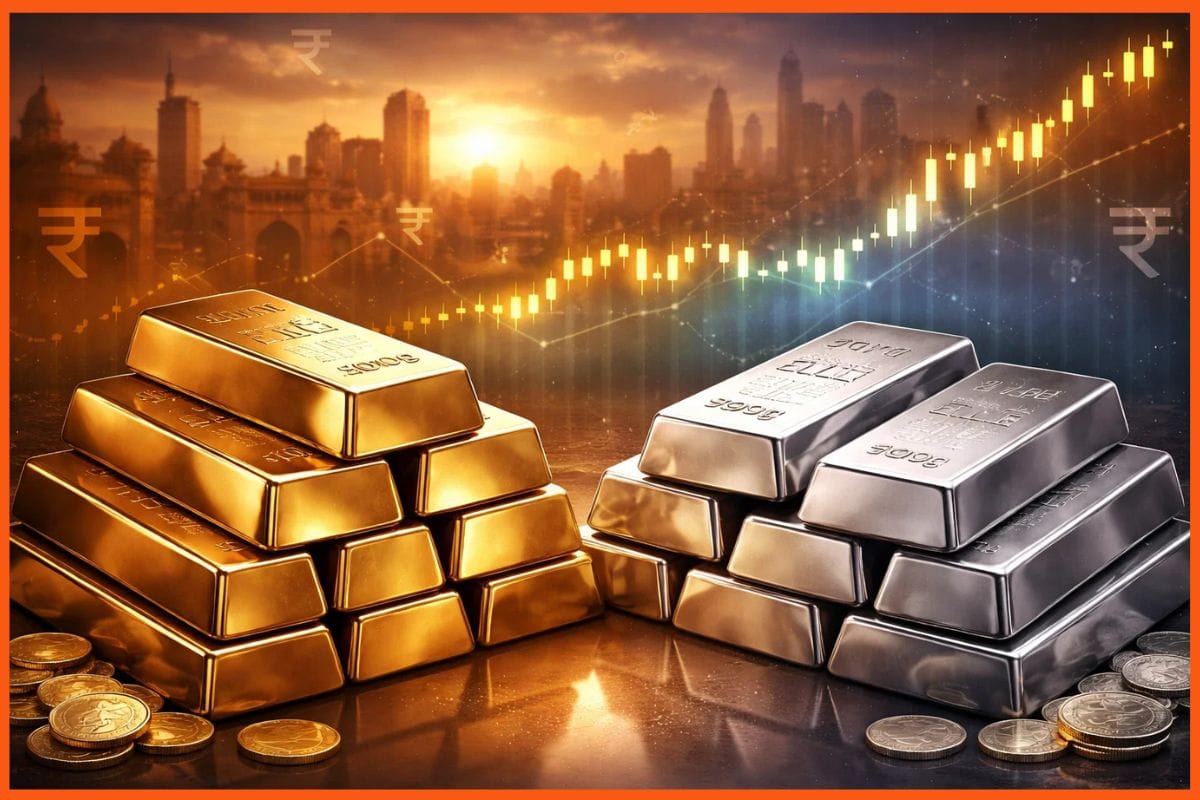IPL: A Cricket Saga With Controversies Attached to It
🔍Insights
The Indian Premier League (IPL) is a massive event in cricket, known for its exciting matches and the money, sponsorships, and media rights it brings in. Profitable transactions, controversy, and tremendous brand value growth have all flourished in the Indian Premier League (IPL) since its start in 2008.
The Indian Premier League (IPL) is not just a cricketing extravaganza; it's a multibillion-dollar enterprise where controversies can significantly impact sponsors, broadcasters, and franchise valuations. While on-field action captivates fans, off-field incidents often have profound business repercussions. Here are some of the most notable IPL controversies with serious business consequences, updated as of 2025:
The Harbhajan Singh Commentary Critique (2025) – Balancing Feedback and Brand Image
The 2024 Betting Scandal – A $50 Million Sponsorship Crisis
The "Fake Social Media Engagement" Scandal (2023) – Inflated Metrics Undermine Trust
The "Dubai Relocation" Rumors (2025) – Speculation Over IPL's Venue Sparks Uncertainty
The Great "Player Salary Leak" (2024) – Transparency in Question
The Clash on Sponsorship
A Media Extravaganza
Difficulties and Disagreements
Why Do These Controversies Matter?
2025’s Big Lesson?
The Harbhajan Singh Commentary Critique (2025) – Balancing Feedback and Brand Image
What Happened?
In March 2025, former Indian cricketer and current commentator Harbhajan Singh responded to a fan's criticism regarding the quality of Hindi commentary during the IPL.
The fan expressed concerns about the deteriorating standard, noting that earlier commentators provided more informative insights, whereas current commentary leaned towards sarcastic one-liners. Harbhajan took the feedback positively, acknowledging the need for improvement.
Business Impact:
- Broadcast Credibility: Acknowledgment of commentary quality concerns by a prominent figure like Harbhajan Singh highlighted the need for broadcasters to ensure high standards, directly impacting viewer satisfaction and retention.
- Sponsor Confidence: Constructive engagement with audience feedback can bolster sponsor confidence, demonstrating a commitment to continuous improvement and audience engagement.
- Social Media Meltdown: The spat dominated trending charts, with millions of tweets flooding the platforms, drawing brands into the battle unwillingly.
Lesson for IPL:
Maintaining high broadcasting standards is crucial. Open acknowledgment and responsiveness to feedback can enhance the league's reputation and ensure sustained viewer and sponsor interest.

The 2024 Betting Scandal – A $50 Million Sponsorship Crisis
What Happened?
In 2024, a franchise official was implicated in illegal betting activities, leading to arrests and a media frenzy. Investigations uncovered a network of bookies operating within the IPL ecosystem, severely undermining the trust of corporate investors.
In response, the league’s governing body introduced stricter regulations, enhanced background checks for franchise officials, and ramped up monitoring to detect suspicious betting patterns.
Business Fallout:
- Major Sponsors Withdrew: A fintech giant and a fantasy sports app terminated their sponsorships mid-season, resulting in losses exceeding $50 million.
- Advertising Revenue Decline: Streaming platforms experienced a dip in ad spending as brands hesitated to associate with a league mired in controversy.
- Legal Repercussions: IPL had to implement stricter compliance measures to regain credibility among investors and regulatory authorities.
IPL’s Response:
The league implemented stricter compliance measures, including comprehensive background checks for franchise officials, to restore credibility among investors and regulatory authorities.
Why does it Matter?
Betting scandals don’t just tarnish reputations, but they also directly hit revenue. Sponsors and broadcasters demand zero-tolerance policies to protect their investments.

The "Fake Social Media Engagement" Scandal (2023) – Inflated Metrics Undermine Trust
What Happened?
An investigation in 2023 revealed that multiple IPL teams had purchased fake followers and bots to artificially boost player and franchise popularity on social media platforms.
In response, platforms like Twitter (now X), Instagram, and Facebook were urged to crack down on fraudulent engagement practices, while the IPL governing body considered imposing stricter regulations on teams' digital strategies. The scandal also ignited broader discussions about ethical marketing in sports and the fine line between strategic promotion and outright deception.
Why It Hurts Business:
- Deceptive Metrics: Sponsorship deals negotiated based on inflated engagement figures led to brands feeling misled.
- Platform Crackdowns: Social media companies took action by removing fake accounts, causing a noticeable drop in engagement metrics for teams.
- Erosion of Trust: Sponsors now demand audited social media reports before signing endorsement deals.
Result:
To prevent future manipulations, the IPL mandated third-party audits of all team social media metrics, ensuring transparency and authenticity for sponsors.
Why does it Matter?
The IPL learned this lesson the hard way when its social media deception came to light, proving that in the long run, authenticity isn't just preferable - it's the only sustainable business strategy.

The "Dubai Relocation" Rumors (2025) – Speculation Over IPL's Venue Sparks Uncertainty
The Buzz:
In 2025, reports emerged suggesting that the IPL might relocate part of its season to Dubai due to increasing taxes and political scrutiny in India. Given that the UAE had previously hosted IPL matches in 2020 and 2021 amid the COVID-19 pandemic, these speculations gained traction.
Corporate Chaos:
- Sponsor Apprehension: Indian brands expressed concerns, emphasizing that their primary audience was domestic, and a move could diminish their marketing impact.
- Broadcast Rights Uncertainty: Broadcasters faced potential renegotiations, questioning the value of rights for a league possibly shifting away from its core Indian viewership.
- Logistical Nightmare: Moving operations would mean renegotiating contracts, which could hurt teams financially.
IPL’s Damage Control:
League officials promptly denied the relocation rumors but hinted at the possibility of additional international matches to expand the IPL's global footprint while retaining its Indian base.
Why does it Matter?
The IPL’s financial ecosystem depends on Indian viewership and sponsors. Any move abroad risks alienating its core market.
The Great "Player Salary Leak" (2024) – Transparency in Question
What Happened?
In 2024, a cyberattack exposed confidential salary information, revealing that certain star players were receiving up to 40% more than the officially declared amounts.
This disclosure led to allegations of financial discrepancies and favoritism. This scandal was a wake-up call, pushing league administrators to tighten cybersecurity measures and reinforce financial oversight mechanisms.
Fallout:
- Fairness Debates: The revelations sparked discussions about the integrity of the salary cap system, with smaller franchises feeling disadvantaged.
- Sponsor Reluctance: Brands reconsidered their investments, concerned about the financial stability and transparency of the teams they were endorsing.
- Legal Backlash: The leak raised concerns over contractual transparency, forcing IPL to address potential loopholes.
IPL’s Fix:
In response, the league introduced blockchain-based contracts in 2025 to ensure complete transparency in player salaries and financial dealings, aiming to restore trust among stakeholders.
The Lesson:
Financial opacity breeds distrust. The league must ensure fair play both on and off the field.

The Clash on Sponsorship
Deals like PepsiCo's 2015 withdrawal, which came to an abrupt end, showed how unstable these alliances can be. This was further demonstrated by Vivo's entrance and later exit from the IPL as a result of geopolitical tensions and commercial losses caused by the COVID-19 pandemic.
The extension of the Tata Group's contract as the title sponsor of the Indian Premier League for 5 years (2024–28) at a cost of ₹2,500 crore (US$310 million) is a landmark event in this context, as it represents the highest sponsorship amount in the league's history. The IPL's title sponsorship rights for 2022 and 2023 were originally held by the Tata Group.
Just like its financial success, the IPL's brand worth has skyrocketed. The value of the event skyrocketed from $4.16 billion in 2016 to an incredible $6.13 billion in 2018, and recently, a media report stated that the current value of this league has touched an iconic figure of $10.7 billion. Profitable TV arrangements and creative approaches to engaging fans from all walks of life are two of the many reasons for this meteoric rise. The league was able to increase its viewership and revenue by branching out into regional stations that offered bilingual commentary.

A Media Extravaganza
There has been no downside to the IPL's broadcasting experience. The league's ten-year association with Sony Pictures Networks set the stage for groundbreaking accords, the most recent of which was Star India's acquisition of worldwide media rights in 2017. A new era of accessibility began with the subsequent growth of digital streaming sites like Hotstar, which allowed millions of people worldwide to effortlessly tune into live matches.
Star Sports will once again be the official television broadcaster of the Indian Premier League this season, bringing the excitement of the games to fans throughout the country. Jio Cinema, in the meantime, is operating as a digital broadcaster, making sure that viewers can watch on their own digital devices.

Difficulties and Disagreements
Since the beginning of the Indian Premier League (IPL), one of its defining characteristics has been the presence of controversies, which frequently overshadow the league's outstanding performance on the pitch. Scandals involving match-fixing and ownership issues have tarnished the league's generally impeccable image.
The Indian Premier League has a checkered past due to spot-fixing allegations in which players were accused of intentionally manipulating certain points in a match for financial benefit. One notable example is the 2012 Indian Premier League spot-fixing case, which resulted in the suspension and lifelong bans for specific players. A comparable incident surfaced in 2013, leading to bans, arrests, and broad censure from cricket fans and officials.
Several IPL franchises have been embroiled in ownership conflicts, which have resulted in contentious legal fights. The Rajasthan Royals ownership issue is a well-known example of a situation where claims of irregularities in shareholding and ownership structures surfaced. The participation of prominent figures, such as Bollywood stars, intensified the scandal and prompted inquiries over the openness and leadership of IPL clubs.
Team owners' participation in cricket administration is one area where the IPL has come under fire for potential conflicts of interest. Case in point: N. Srinivasan's ownership of Chennai Super Kings (CSK) and his prominent roles inside the Board of Control for Cricket in India (BCCI) prompted questions regarding the objectivity and fairness of team management and league administration.
Many people, including players, commentators, and fans, were skeptical and critical of the decision to use strategic time-outs in IPL matches. Although they were meant to give teams a chance to plan their strategies during games, many fans saw these timeouts as nothing more than a marketing ploy to boost ad revenue at the expense of the actual game. Stakeholders' frustrations were already high due to slow over rates, which meant that matches frequently went beyond their allotted time.
As a result of escalating geopolitical tensions, Pakistani players have been informally barred from participating in the IPL. Pakistani players have encountered difficulties in obtaining contracts and competing in the league as a result of political sensitivities, even if they were chosen in previous seasons. Cricketing circles and fans have voiced their disapproval at this omission, which has brought attention to the way sports and geopolitics intertwine in the IPL.

Why Do These Controversies Matter?
These incidents underscore the complex interplay between the IPL's on-field excitement and its off-field business dynamics, highlighting the importance of robust governance to sustain corporate partnerships and financial growth.
The IPL transcends cricket; it's a commercial juggernaut where controversies can erode millions in value. Sponsors, broadcasters, and franchises operate in a high-stakes environment where reputation management is paramount.
The IPL extends far beyond the boundaries of the cricket field; it is a global sports and entertainment powerhouse. Every controversy, whether related to player conduct, team ownership, or administrative decisions, has the potential to disrupt investor confidence, impact sponsorship deals, and diminish broadcasting revenues.
In an era where public perception plays a critical role in shaping the value of sports leagues, mismanagement or ethical lapses can translate into significant financial losses, affecting everyone from franchise owners to advertisers and media partners.
2025’s Big Lesson?
Striking a balance between high-octane entertainment and ethical governance has never been more critical. As the IPL continues its rapid expansion on the global stage, transparency, accountability, and integrity will be fundamental to ensuring its long-term sustainability.
Without these pillars, even the most successful sporting leagues can face setbacks, proving that financial growth must go hand in hand with responsible management.
These disputes highlight the intricate dynamics within the IPL, where business concerns, problems with administration, and geopolitical tensions converge with the essence of cricket. Even while the league is still a huge deal throughout the world, it needs to deal with these scandals if it wants to keep its credibility and legitimacy intact.
FAQs
Who is the title sponsor of IPL?
Tata Group's contract as the title sponsor of the Indian Premier League is extended for 5 years (2024–28) at a cost of ₹2,500 crore (US$310 million), and it represents the highest sponsorship amount in the league's history.
Who is the official television broadcaster of IPL for this season?
Star Sports is the official television broadcaster of the Indian Premier League this season.
What is IPL's brand worth?
The value of the event skyrocketed from $4.16 billion in 2016 to an incredible $6.13 billion in 2018 and recently, a media report stated that the current value of this league has touched an iconic figure of $10.7 billion.
Must have tools for startups - Recommended by StartupTalky
- Convert Visitors into Leads- SeizeLead
- Website Builder SquareSpace
- Run your business Smoothly Systeme.io
- Stock Images Shutterstock







